
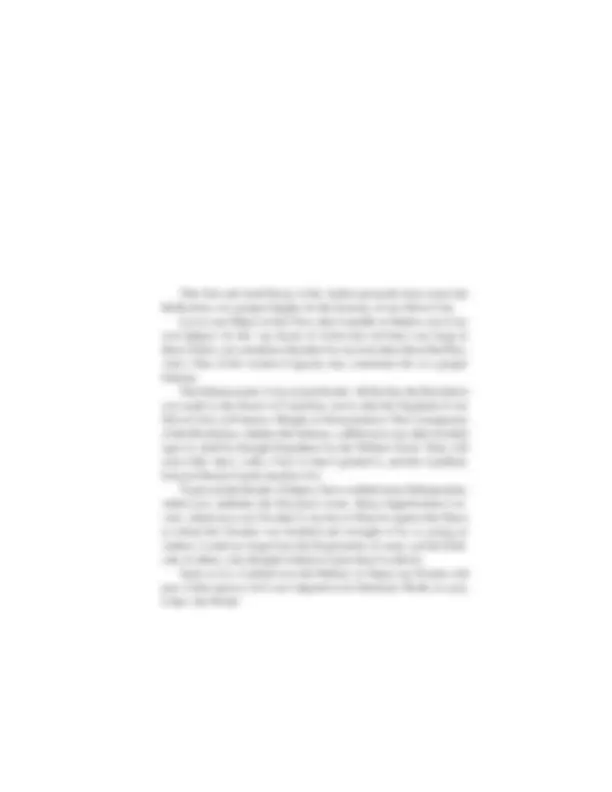
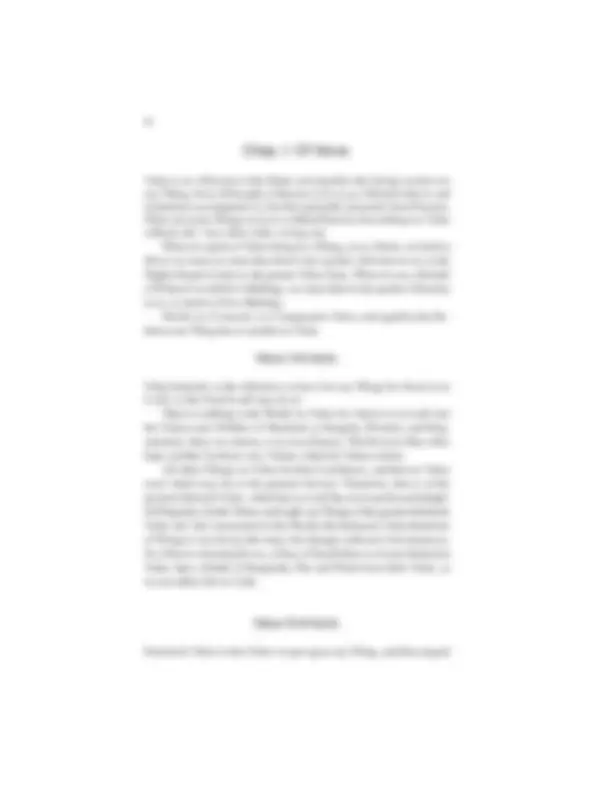
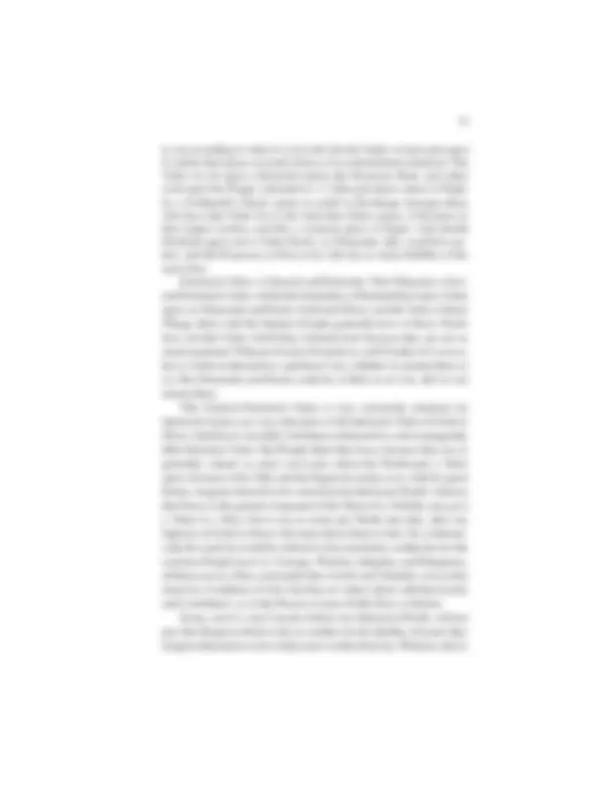
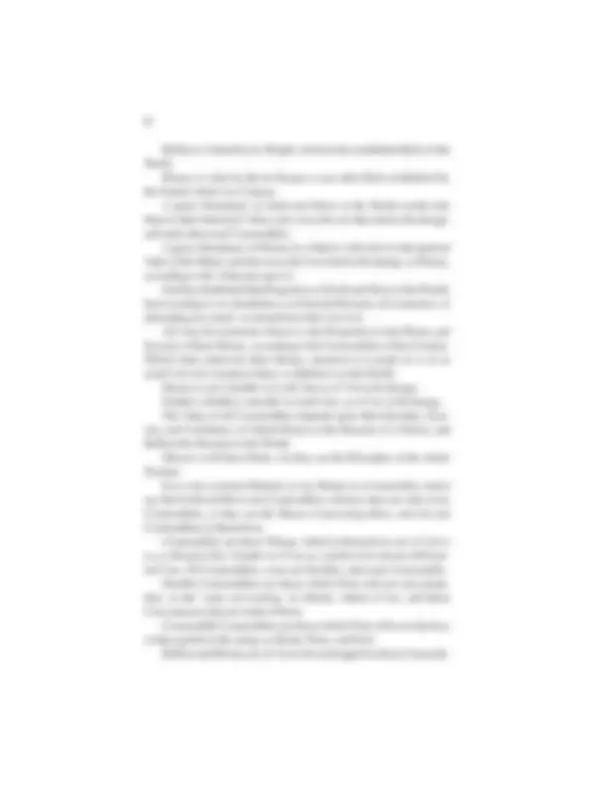
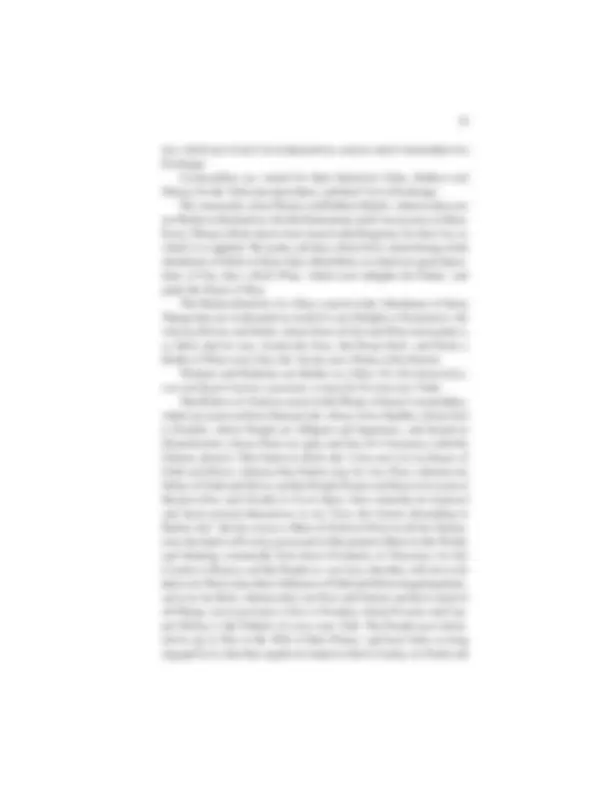
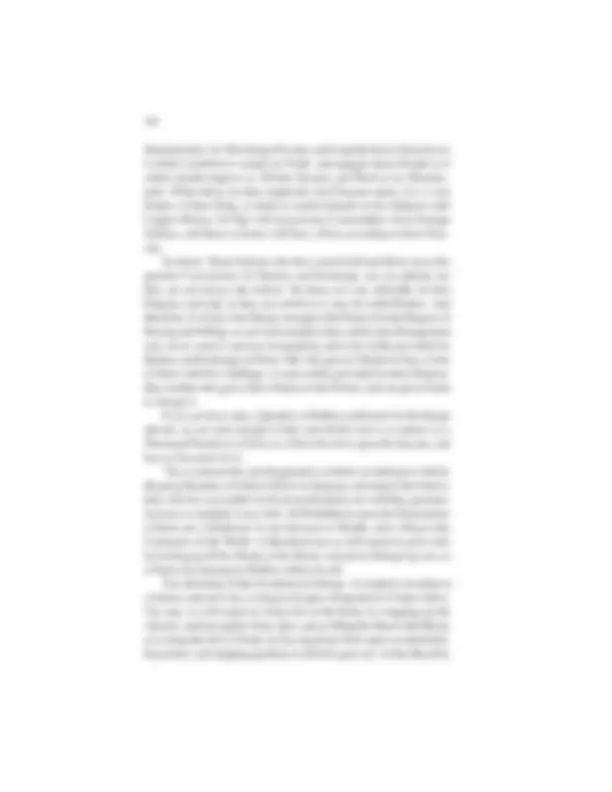
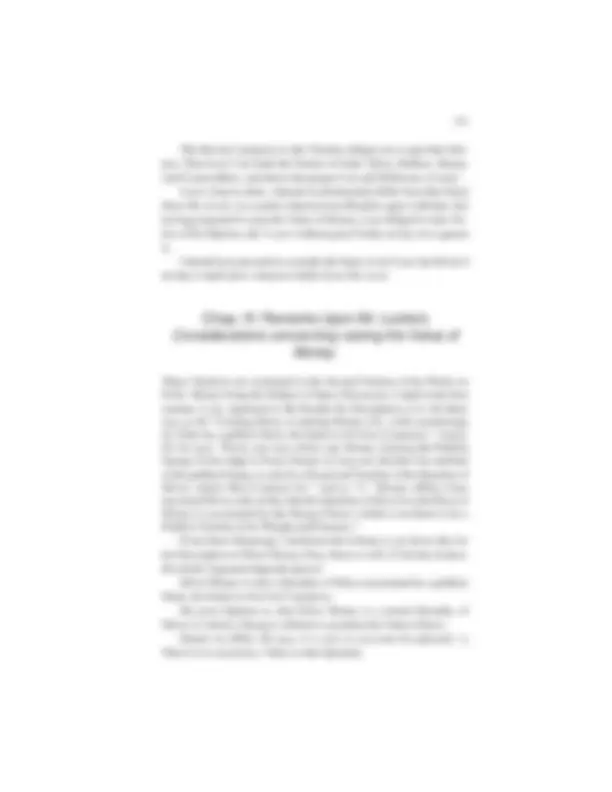
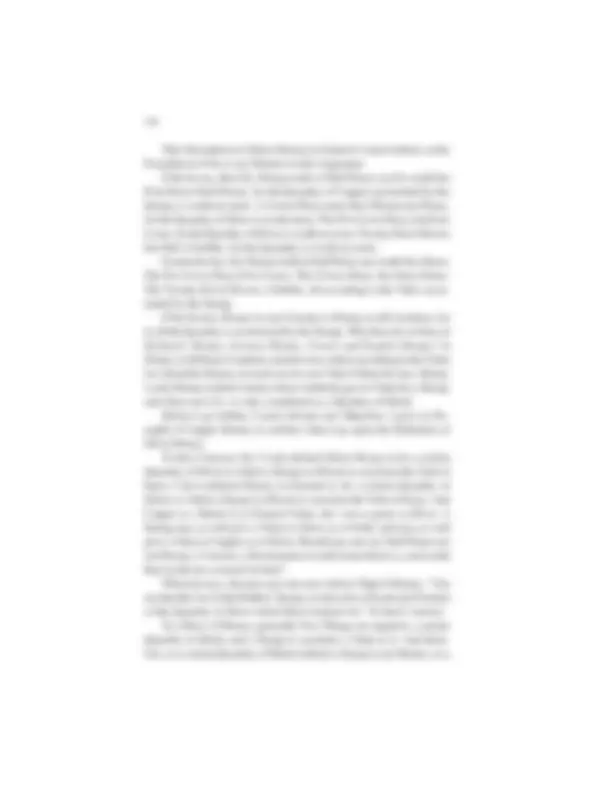
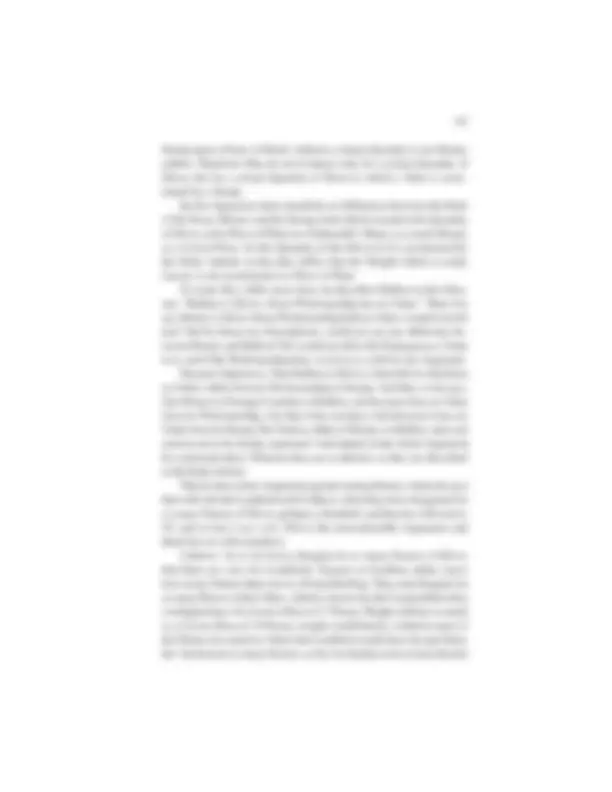
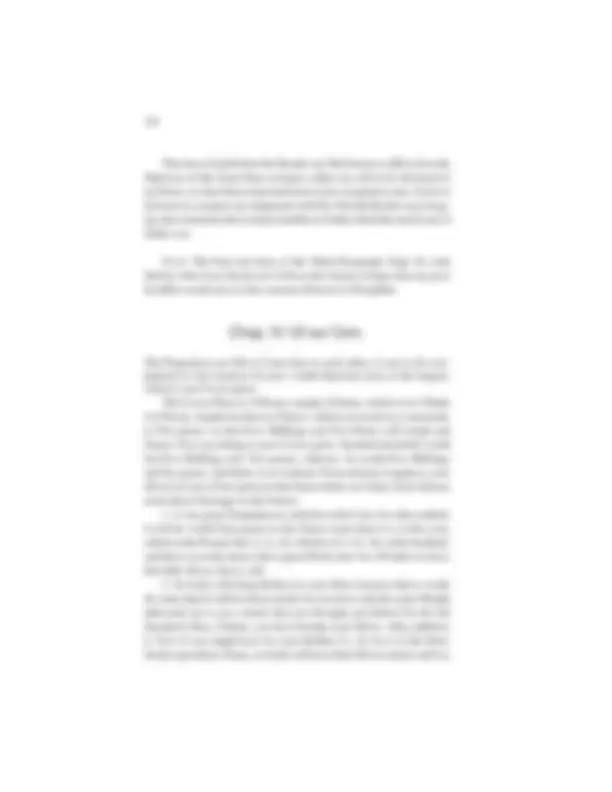
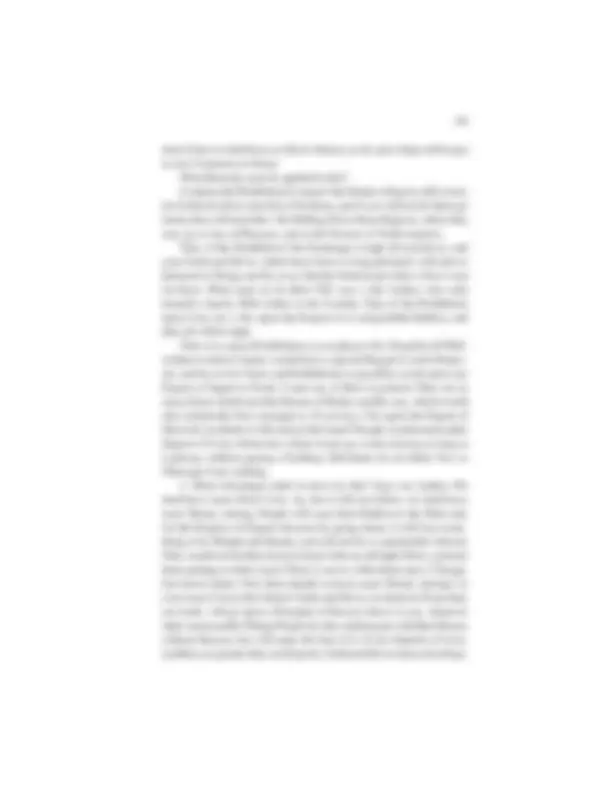
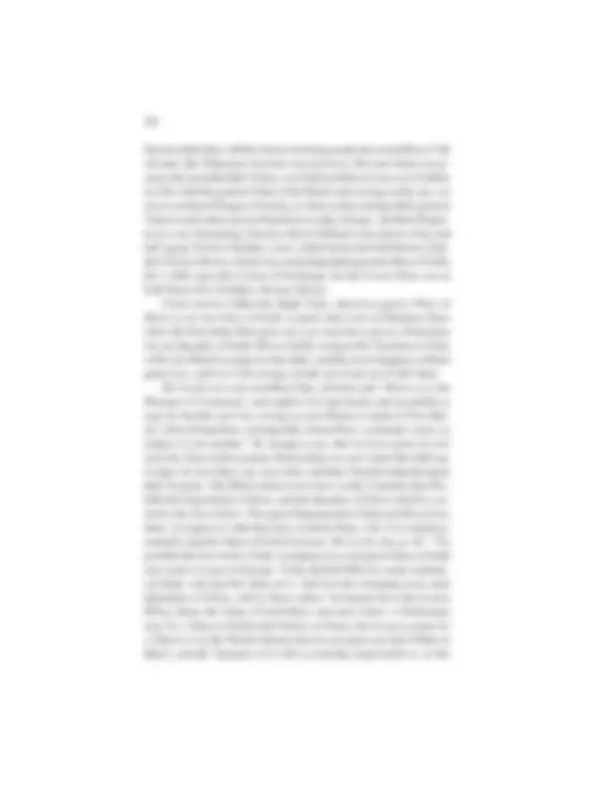
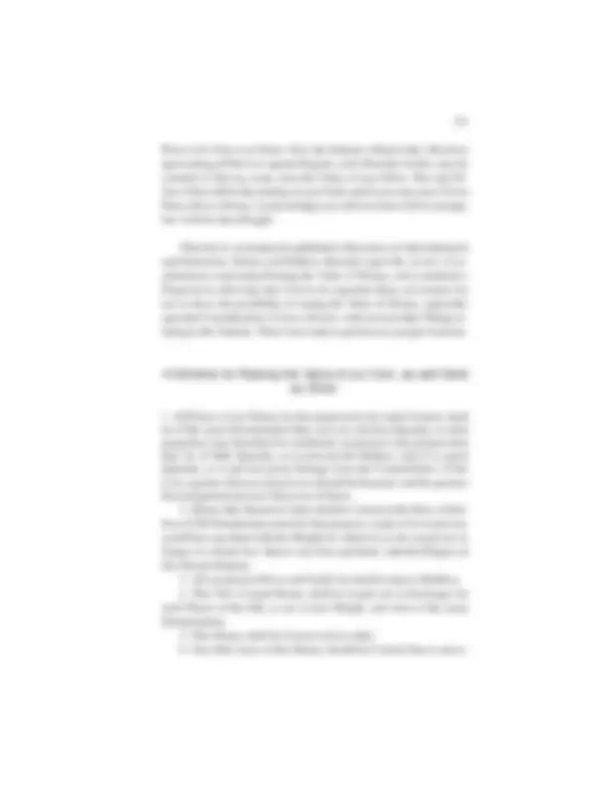
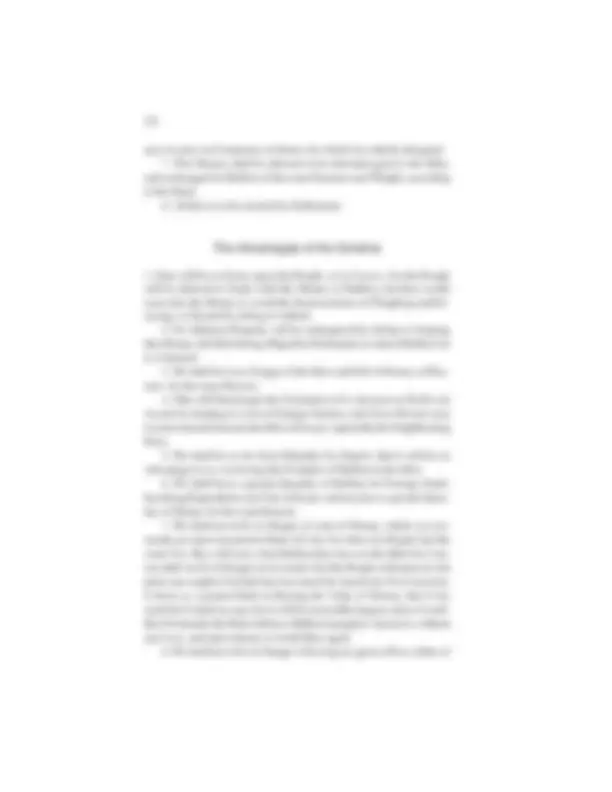
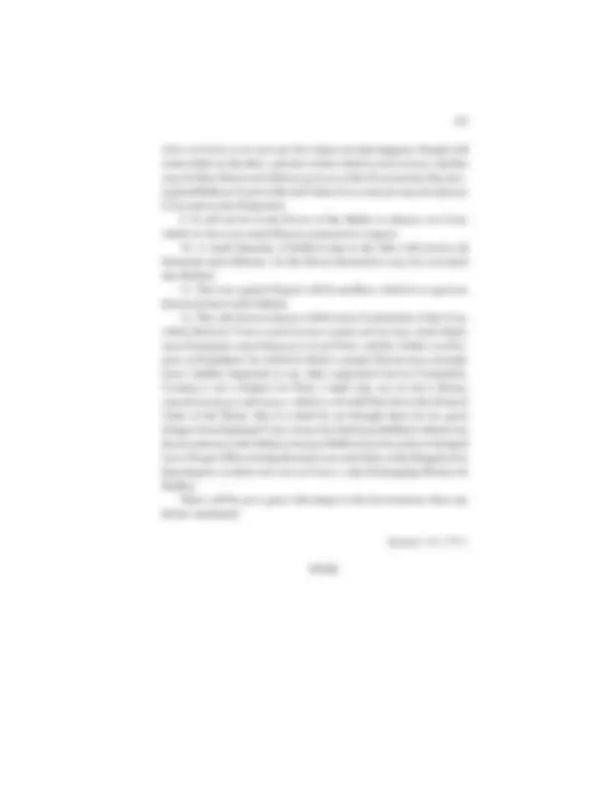


Study with the several resources on Docsity

Earn points by helping other students or get them with a premium plan


Prepare for your exams
Study with the several resources on Docsity

Earn points to download
Earn points by helping other students or get them with a premium plan
Community
Ask the community for help and clear up your study doubts
Discover the best universities in your country according to Docsity users
Free resources
Download our free guides on studying techniques, anxiety management strategies, and thesis advice from Docsity tutors
The difference between intrinsic and extrinsic value of gold and silver. The author argues that the value of these metals is not inherent but rather depends on the opinion of the general public and their scarcity in the world. The document also touches upon the role of money and the importance of maintaining a balance in the proportion of gold and silver in circulation.
Typology: Lecture notes
1 / 23

This page cannot be seen from the preview
Don't miss anything!
















Nescis, quÛ valeat Nummus, quem praebeat usum Argentum.
Printed for B. Lintot, between the Temple-Gates. MDCCXVIII
Value is an Affection of the Mind, and signifies the Liking we have to any Thing, from a Principle of Reason; Love is an Affection like it, and sometimes accompanies it, but that generally proceeds from Passion. There are many Things we Love without Reason, but nothing we Value without, tho’ very often with a wrong one. When we speak of Value being in a Thing, as in a Horse, or Gold or Silver we mean no more than that it stirs up that Affection in us; to the Higher Degree it does it, the greater Value it has. When we say a Bushel of Wheat is worth Five Shillings, we mean that it stirs up this Affection in us, as much as Five Shillings. Worth, in a Concrete, is a Comparative Term, and signifies the Re- lation one Thing has to another in Value.
Value Intrinsik, is the Affection we have for any Thing for what it is in it self, or the Good it self may do us. There is nothing in the World we Value for what it is in it self, but the Virtues and Abilities of Mankind; as Integrity, Wisdom, and Mag- nanimity; these we esteem, even in an Enemy. The Envious Man often hates another for those very Virtues which he Values in him. All other Things we Value for their Usefulness, and that we Value most which may do us the greatest Service: Therefore, that is of the greatest Intrinsik Value, which has in it self the most useful and delight- ful Properties. Earth, Water, and Light, are Things of the greatest Intrinsik Value, tho’ the commonest in the World; the Intrinsick Value therefore of Things is not always the same, but changes with our Circumstances. To a Man in a burning Fever, a Glass of Small-Beer is of more Intrinsick Value, than a Bottle of Burgundy. Fire and Water have their Value, as we are either Hot or Cold.
Extrinsick Value is that Value we put upon any Thing, and then regard
it, not according to what it is in it self, but the Value we have put upon it; and by that means we make it have a Use which before it had not. The Value we set upon a Diamond makes the Possessor Rich, and when worn upon his Finger, esteemed so. A Value put upon a piece of Paper by a Goldsmith’s Hand, makes it useful in Exchange amongst those who have that Value for it; but when that Value ceases, it becomes in that respect useless, and like a common piece of Paper; And should Mankind agree not to Value Pearls, or Diamonds, they would be use- less, and the Possessor as Poor as he who has so many Pebbles of the same Size. Extrinsick Value, is General and Particular. That Thing has a Gen- eral Extrinsick Value, which the Generality of Mankind have put a Value upon, as Diamonds and Pearls, Gold and Silver; and the Value of these Things alters with the Opinion People generally have of them. Pearls have not that Value which they formerly had, because they are not so much esteemed. Whereas Food to Nourish us, and Cloaths to Cover us, have a Value in themselves, and those Uses, whether we esteem them or no: But Diamonds and Pearls could be of little or no Use, did we not esteem them. This General Extrinsick Value, is very commonly mistaken for Intrinsick; hence you very often hear of the Intrinsick Value of Gold or Silver, which have very little Usefulness in themselves, and consequently little Intrinsick Value. But People think they have, because they are so generally valued; as some vain Lord, whom the World puts a Value upon, because of his Title and the Figure he makes in it, with his great Estate, imagines himself to be valued for his Intrinsick Worth; whereas that Fancy is the greatest Argument of his Want of it. Nobility may give a Value to a Man, but it can no more put Worth into him, than my Opinion of Gold or Silver will make them Hard or Soft. He is Intrinsi- cally the same he would be without it; but sometimes, neither he nor the common People know it. Courage, Wisdom, Integrity, and Eloquence, all these are in a Man, and render him Useful and Valuable, even in the most low Condition of Life; but they no where shine with that Lustre and Usefullness, as in the Person of some Noble Peer, or Patriot. Some, out of a vain Conceit of their own Intrinsick Worth, will not pay that Respect which is due to another for his Quality, because they imagine themselves to be really more worthy Persons; Whereas, this is
portion in Scarcity, they have had the same Proportion in Value, espe- cially in these Parts of the World; tho’ now something different in China: For here it is generally as One to Fifteen; there, as One to Twelve. But the Proportion is now fluctuating; of which more, when I come to treat of our Coin. Tho’ the Difference in Value of Gold and Silver, entirely depends upon the Scarcity of one more than the other in the World; yet a greater Plenty of Gold than Silver in any one Nation, will very little alter the Value of it there: Because, however it may be with some particular Na- tion, it is not so with the World: And the Gold may be exchanged for Silver abroad, without the least Obligation to give a Praemium for it: Altho’ the People of that Nation must do so amongst themselves, for the Convenience of little Bartery, which Gold is not proper for: But never- theless the General Value is still the same. The Want of small Change, is the only Damage which attends the great Quantity of Gold (more than Silver) now in this Nation; tho’ some People have a Notion, that the Portugal Trade has impoverish’d us. There is another Thing, I must observe; That if any Nation or People in the World observe a different Proportion of Gold and Silver from all the rest, they will be Losers in Proportion to that Difference. To make this plain: If any Family in the Nation give Twenty five Shillings for a Guinea; that Piece may in that Family pass for Twenty five Shillings: But when any one comes abroad, he will find he can get but Twenty one; and will plainly perceive himself Four Shillings poorer for every one he has changed.
Money is a certain Piece generally of Metal, which is establish’d by a Nation, to be a Measure of the Value of the Commodities procured there. One certain Piece is to produce such a Quantity of Goods, as will bear a Proportion to the Value put upon it. If a Penny will buy a Pound of Lead and a Pound of Iron, then each of these have the same Value. Bullion is the Measure of Commerce in the World. Money is the Measure of Commerce in the Nation where it is cur- rent.
Bullion is Valued by its Weight, which is the established Rule of the World. Money is value by the its Stamp, or any other Rule established by the Nation where it is Current. A great Abundance of Gold and Silver in the World would sink them to their Intrinsick Value, take away the use they had in Exchange, and make them real Commodities. A great Abundance of Money in a Nation, will sink it to the general Value of the Metal, and take away the Use it had in Exchange, as Money, according to the Value put upon it. God has distributed that Proportion of Gold and Silver to the World, least wanting it, we should have no General Measure of Commerce; or abounding too much, we should lose that Use of it. All wise Governments observe a due Proportion in the Plenty and Scarcity of their Money, according to the Commodities of the Country: Which when observed, their Money, whatever it is made of, is of as much Use for Commerce there, as Bullion is in the World. Money is not valuable in it self, but as of Use in Exchange. Neither is Bullion valuable in it self; but, as of Use in Exchange. The Value of all Commodities depends upon their Quantity, Scar- city, and Usefulness; of which Money is the Measure of a Nation, and Bullion the Measure in the World. Observe well these Rules, for they are the Principles of the whole Treatise. It is a very common Mistake, to say Money is a Commodity; and to say that Gold and Silver are Commodities; whereas they are only so far Commodities, as they are the Means of procuring them, and not real Commodities in themselves. Commodities are those Things, which in themselves are of Use to us, as Bread to Eat, Cloaths to Cover us, and Iron for almost all Exter- nal Uses. Of Commodities, some are Durable, and some Consumable. Durable Commodities are those which Time will not soon preju- dice, or tho’ used, are Lasting: As Metals, which of Use, and those Conveniences that are made of them. Consumable Commodities are those which Time will soon destroy, or they perish in the using; as Bread, Wine, and Fuel. Bullion and Money are of Use to be exchanged for these Commodi-
Manufactures; for War brings Poverty, and it spends those Treasures in it which would have carried on Trade, and engages those People in it which should improve it, Till the Ground, and Work in its Manufac- tures. When those are thus neglected, and Treasure spent, it is a vain Project of their King, to think to enrich himself or his Subjects with Copper-Money; for that will not procure Commodities from Foreign Nations, and those at Home will bear a Price according to their Scar- city. To return. Those Nations who have most Gold and Silver, have the greatest Convenience for Bartery and Exchange; yet you plainly see they are not always the richest: Yet these are very desirable for that Purpose; and only as they are useful in it, may be called Riches. And therefore, if we have but Money enough in the Nation for the Purpose of Buying and Selling, we are rich enough in that, and by due Management may never want it; and may be properly said to be richly provided for Bartery and Exchange at Home. She who goes to Market to buy a Joint of Meat with Five shillings, is more richly provided for that Purpose, than another who goes with a Guinea in her Pocket, and can get no body to change it. If we can have only a Quantity of Bullion sufficient for Exchange abroad, we are rich enough in that; and all the rest is as useless as a Thousand Pounds in a Chest, to a Man who lives upon his Income, and has no Occasion for it. ‘Tis a common but vain Imagination, to think we shall grow rich by the great Quantity of Gold or Silver we heap up, and keep in the Nation. they will serve us neither for Food nor Raiment; nor will they generate, increase or multiply in any Soil. All Prohibitions upon the Exportation of them are a Hindrance to our Increase in Wealth, and a Stop to the Commerce of the World. A Merchant may as well expect to grow rich by locking up all his Money in his House, and never letting it go out, as a Nation by keeping its Bullion within its self. You often hear of the Circulation of Money: As ought to circulate in a Nation; and our Coin, as long as it keeps a Proportion of Value with it. You may as well expect to keep Life in the Body, by stopping up the Arteries, and leaving the Veins open, and so filling the Heart with Blood, as to keep the Life in Trade, by leaving those Ports open at which Bul- lion enters, and stopping up those at which it goes out. As the Blood by
running preserves Life in the Body, and conveys a proper Increase to every Part, though it self be neither; so Bullion, by running about the World, preserves the Life of Trade, and brings Riches wherever it comes, tho’ in it self it be neither. Those Nations who prohibit the Exportation of it, seem to me like that Clown, who observing the Overflowing of the River made his Meadow fruitful; the next Flood damn’d the Water all in, and so turned it into a Bogg, which for a long time after bore nothing but Sedge: Whereas it was not the Water it self that enriched his Soil, but those Particles of Earth it brought, and left behind it. I can’t but smile here at the Notion of a late Author, who thinks our Silver is better in Plate than Bullion; because then it may be carried out; and that is to a prodigious degree more detrimental, than Melting our Coin to make Plate. Spain and Portugal , who prohibit the Exportation of Bullion upon Pain of Death, seem by these Rules to be Nations of Monsters; who hang and rack those that feed and cloath them, and that only because they do it. But so industrious are Gold and Silver for the Good of Man- kind, that (maugre all the Devices of their Guardians) they will break loose, and convey as great Riches in departing, as they bring in their Return. but did not Gold and Silver know better what was good for them than they do for themselves, they would soon part with all their Valuable Commodities, and be in the Case of Midas , who by his Touch turn’d every Thing into Gold, and so starved for want of Bread. ‘Tis a common but vain Measure of the Advantage or Disadvantage of a Trade, by the Quantity of Bullion it exports or imports the Nation. I never met with any one, who wrote or talked upon this Subject, but took this for a Rule. Reader; instead of tiring your Patience with a long Argument, I shall tell you this short Story. An old Woman having spun Two Pieces of Cloth, sent her Two sons to different Markets; the Elder brought home a Bushel of Wheat, and the Younger a Shilling in Money. She commended the little Boy, and said he had made the best Bargain; for she had Wheat enough before, but not a Penny of Money in the House. I now very naturally fall into Trade; but shall not at present trouble you on that Subject. “Tis commonly reported, that the Great Mogul, and other Princes of the East-Indies , treasure up all the Gold and Silver they can get, by burying it in the Earth; and by that Means deprive themselves and the
The Brevity I propose in this Treatise obliges me to quit this Sub- ject. Thus have I set forth the Nature of Gold, Silver, Bullion, Money and Commodities; and shewn the proper Use and Difference of each. I now come to shew, wherein I unfortunately differ from this Great Man, Mr. Locke , in a matter wherein most Readers agree with him, but having proposed to raise the Value of Money, I am obliged to take No- tice of his Opinion, tho’ I can’t without great Vanity set my own against it. I should now proceed to consider the State of our Coin; but before I do that, I shall show wherein I differ from Mr. Lock.
Considerations concerning raising the Value of Money.
These Treatises are contained in the Second Volume of his Works in Folio. Money being the Subject of these Discourses, I shall in the best manner, I can, represent to the Reader his Description of it. He there says, p. 68. “Coining Silver, or making Money of it , is the ascertaining its Value by a publick Mark, the better to fit it for Commerce.” And p.
This Description of Silver Money in General, I must submit, as the Foundation of his or my Mistake in this Argument. If his be rue, then Six-Pennyworth of Half-Pence can be worth but Four Pence Half-Penny; for the Quantity of Copper ascertained by the Stamp, is worth no more. A Crown Piece more than Threescore Pence, for the Quantity of Silver is worth more; The Five Livre Piece, but Four Livres, for the Quantity of Silver is worth no more. Twenty Dutch Stivers but Half a Guilder, for the Quantity is worth no more. If mine be true, Six-Pennyworth of Half Pence are worth Six-Pence. The Five Liver Piece Five Livers. The Crown Piece, but Sixty Pence. The Twenty Dutch Stivers a Guilder, all according to the Value ascer- tained by the Stamp. If his be true, Money in one Country is Money in all Countries, for in all the Quantity is ascertained by the Stamp. Why then do we hear of Holland’s Money, German Money, French and English Money? Is Money of all those Countries current every where according to the Value for which the Money of each is in its own? But if Mine be true, Money is only Money in that Country whose Authority gave it Value by a Stamp; and when out of it,, is only considered as a Quantity of Metal. Before I go further, I must obviate one Objection. I give an Ex- ample of Copper Money to confirm what I say upon the Definition of Silver Money. To this I Answer; tho’ I only defined Silver Money to be a certain Quantity of Silver to which a Stamp is affixed, to ascertain the Value it bears; I have defined Money in General to be a certain Quantity of Metal, to which a Stamp is affixed, to ascertain the Value it bears; And Copper is a Metal of as General Value, tho’ not so great as Silver. A Stamp may as well give a Value to Silver as to Gold; and may as well give a Value to Copper as to Silver. Should any one say Half-Pence are not Money; I Answer, a Proclamation would make them so, and would they be the less current for that? When he says, because any one may refuse Clipp’d Money, “You see that the Use of the Publick Stamp, is only to be a Guard and Voucher of the Quantity of Silver which Men Contract for;” To that I Answer, To a Piece of Money, generally Two Things are required, a certain Quantity of Metal, and a Stamp to ascertain a Value to it. And there- fore, as a certain Quantity of Metal without a Stamp is not Money; so a
knew, before. Reader, I had prepared a great deal more; but I am loth to rake into the Ashes of this Great Man, who (such is the Misfortune of the World) is now dead; and whom, when living, no one ever confuted. But he never pretended to be infallible: And either these Errors in his Zeal for the Publick Good beset him, or too much Reflection has so turn’d my Brain, that Falshood appears to me in the Shape of Truth. Yet I am not so far gone, nor so fond of my own Opinion, but that I am willing to be inform’d of my Mistake. And if any of Mr. Locke’s Friends, will show me my Error, or I can discover it my self, I will acknowledge it in any manner that shall be thought proper. I shall therefore quit this Argument; and only desire the Reader to look back upon his and my Description of Money and Bullion; and review his Treatise, and see, if he has not all along discoursed of Money as if it did not differ from Bullion. If he has, and you still think there is no Difference between Money and Bullion; my Attempt is vain, and I must fall in your Opinion. But if you think there is a Difference between Money of the World and the Money of particular Nations, (which Mr. Locke has not observed) I hope you will not blame my Endeavours to put this Matter in a clear Light; and acknowledge with me, that this Great Man, who hath left Truths behind him of more intrinsick Worth than all the Gold and Silver in the World; who was so exact and clear in his Notions for want of true ideas of Money and Bullion, has a little mistaken this Argument, which Mr. Lowndes never could have main- tained upon the Foot of a free Coinage; against which, indeed, Mr. Locke’s Argument is chiefly calculated. But he utterly denied the Possibility of raising the Value of Money; and to an Author who said the Kings of Spain and Portugal had done it, he urged, that it was impossible. Should any one object, That my Contention upon the Definition of Money, is only a Quibble about Words: I answer, ‘Tis not Words, but Sense I rely upon: For by the same Reason that a Stamp may give a Value to a Piece of Money, it may add to it; as I shall make more fully appear, in my Argument for the Possibility of raising Money. If I have removed his Foundation, his Structure falls. In the mean time, should any one still object to this and say, shew that an Ounce of Silver with a Stamp can be of more Value than a Piece without; I would answer; That when I was in France, I went with Two Pieces of Silver of the same
Weight, the one stampt with the Image of the present Little King, and the other with the Image of the Old; and every where in that Kingdom, I could get a Fifth Part more of any Commodity for that stampt with the Image of the New King, than I could for that of the Old; altho’ that with the New was so barely stampt, that the Old Stamp might be discerned under it; and both appeared to be Pieces of the same Weight and Fine- ness; and both wou’d be taken, tho’ the Old was prohibited. And here at Home I can’t get so much for an Ounce of coin’d Silver, as I can for an Ounce of uncoin’d. You will say, that is, because the Coin can’t be exported. A Stamp may as well give a Value or Privilege, as take either away. But here I would not be understood to say, that the Government can as much sink the Value of Money below the General Value of the Metal, as raise it; and the Melting Pot will prevent that. And I should have been apt to have denied, with Mr. Locke, that the Market Price of Standard Bullion ever was, or ever can be 5s. 7d of Lawful Weighty Money, the Ounce, had I not lived to have seen the contrary. Should any one yet say, Why, since Mr. Lock is dead, do I make mention of his Name, and attempt to asperse his Memory, by calling his Opinions in Question; I might have argued against the Thing, without mentioning his Name? I answer, I do as I wou’d be done by; and when I am dead and gone, if any one will discover my Errors in Print, he will join in the same Design of imparting Truth to the World. Mr. Locke has Friends enough, who can answer me; and will have Friends, as long as Truth and Learning are regarded in the World: But I wou’d not have done it, had I not thought that the Argument I designed obliged me to it. Every one would have play’d him upon me, and thunder’d in my Ears. That Mr. Locke had said, “That raising the Value of Money, is only giving the usual Denomination of a less Quantity to a greater, but adds no real Value to it. That is impossible to be done.—‘Tis only the Quantity of Silver in Money, that is and eternally will be the Mea- sure of its Value.” But by the small Rules in the 8th and 9th Pages, you will see what little Danger I am in from this great Fire. But most People, how unlike Thee! Impartial Reader! take Opinions, not according to the Truth that is in them, but the Name they bear, just as I do Money stampt with the Image of His Majesty, because I imagine nothing false can be conceal’d under that Face.
short Time we shall have no Silver-Money at all, and a Stop will be put to our Commerce at Home. What Remedy must be applied to this? Continue the Prohibition to export? the Matter will grow still worse; for Gold and silver must have Freedom; and if you will not let them go freely, they will steal thro’ the Melting-Pot to those Regions, where they may go or stay at Pleasure, and as the Honour of Trade requires. Take of the Prohibition? the Exchange is high all around us; and your Gold and Silver, which have been so long pinioned, will take to themselves Wings and fly away: But the Scheme provides a Dove-coat for them. What must we do then? Oh! says a late Author, who calls himself a hearty Well-wisher to his Country, Take of the Prohibition upon Coin, lay a Tax upon the Export of it, and prohibit Bullion, and then all will be right. Take of as many Prohibitions as you please; but I beg that all Well- wishers to their Country would have a special Regard to such Propos- als, and lay as few Taxes and Prohibitions as possibly can be upon any Export or Import in Trade. I mast say of them in general, They are so many Dams which turn that Stream of Riches another way, which would else continually flow amongst us. If you lay a Tax upon the Export of Silver do you think it will come in the faster? People would much rather dispose of it any where else, where it may go, come and stay as long as it pleases without paying a Farthing. Merchants do not think Two or Three per Cent. nothing.
Does he think they will the slower for being made into round Pieces? He obviates this Objection, but does not answer it. But alas! there yet re- mains the immedicabile Vulnus, our Gold and Silver Coin wou’d still be at a Par with the general Value of the Metal; and as long as they are, we are in continual Danger of losing, as often as they change their general Value to each other; just in Proportion as they change: and their Propor- tion is very fluctuating. Guineas, that in Holland, were about a Year and half agone Twelve Guilders, were a little before the Fall Eleven Guil- ders Twelve Stivers, which very much depended upon the Price of Gold, tho’ a little upon the Course of Exchange; but the Crown Price was at both Times Two Guilders, Sixteen Stivers. I have known within this Eight Years, almost as great a Flow of Silver as we now have of Gold, so great, that even at Christmas Time when the East-India Fleet goes out, you must have given a Praemium for any Quantity of Gold; This is chiefly owing to the Variation in Value of the one Metal in respect to the other; and this never happens without great Loss, and ever will as long as both our Coins are at full Value. Mr. Locke was very sensible of this, when he said, “ Money was the Measure of Commerce, and ought to be kept steady and invariable as may be; but this can’t be, as long as your Money is made of Two Met- als, whose Proportion, consequently whose Price, constantly varies, in respect of one another.” Its strange to me, that we have gone on ever since his Time in this manner: But tis plain we can’t make this shift any Longer; for now they vary very often, and their Variation depends upon their Scarcity; The Effects those Laws have in the Countries that Pro- hibit the Exportation of them; and the Quantity of Silver which is car- ried to the East-Indies : The great Disproportion Gold and Silver have there, in respect to what they have in these Parts, will, if it continues, certainly sink the Value of Gold in Europe. Mr. Locke says, p. 46. “‘Tis possible the East-Indies Trade sweeping away such great Sums of Gold may make it scarce in Europe.” It has had the Effect to make it plente- ous there, and sink the Value of it. And now the sweeping away such Quantities of Silver, will in Time, unless ‘tis buried, have the reverse Effect, Raise the Value of Gold there, and sink it here. A Parliament may fix a Value to Gold in the Nation, at Home, but it can no more fix a Value to it in the World Abroad, than it can make one Hair White or Black; and the Variation of it will as certainly impoverish us, as the